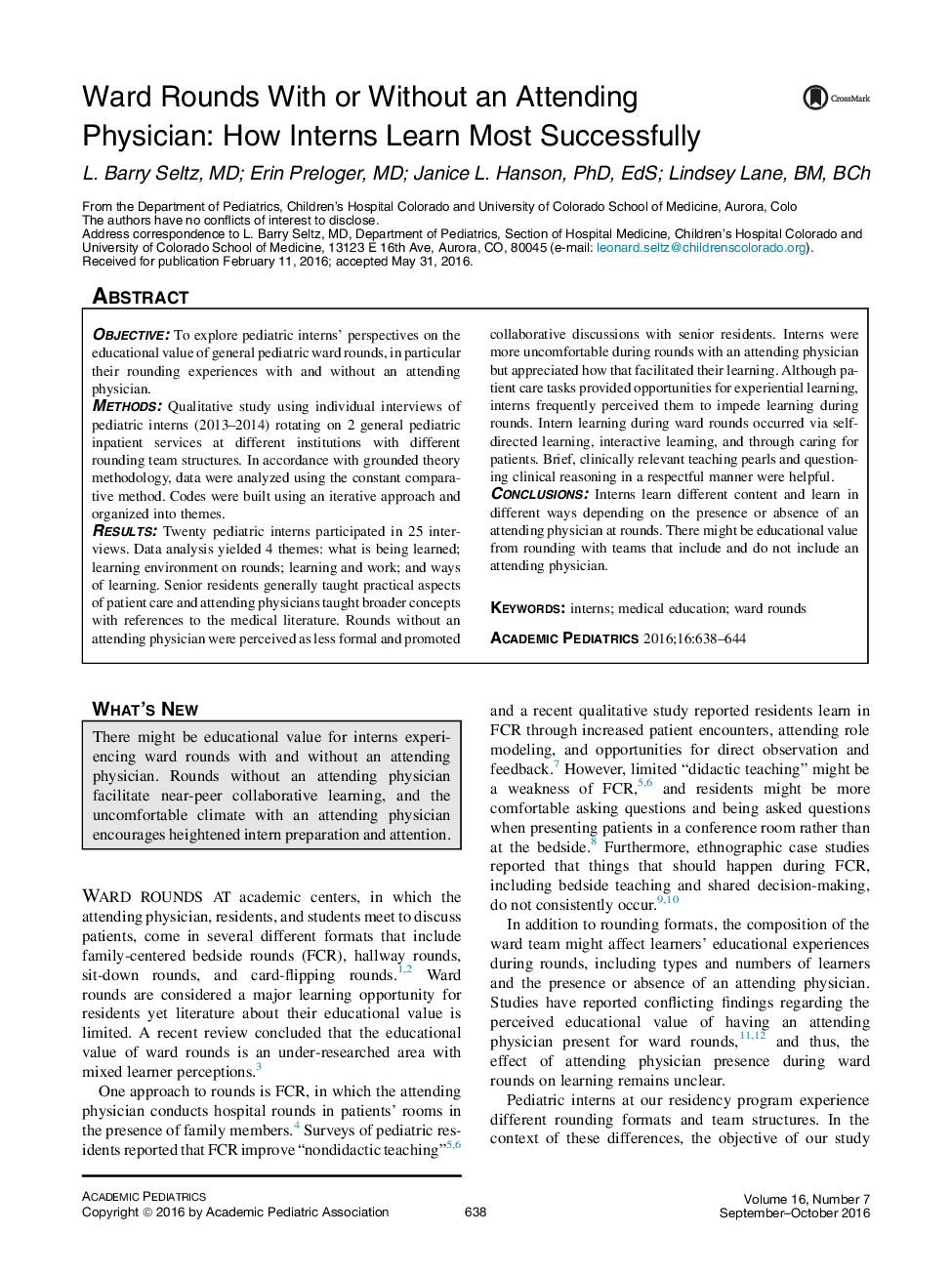| Article ID | Journal | Published Year | Pages | File Type |
|---|---|---|---|---|
| 4138841 | Academic Pediatrics | 2016 | 7 Pages |
ObjectiveTo explore pediatric interns' perspectives on the educational value of general pediatric ward rounds, in particular their rounding experiences with and without an attending physician.MethodsQualitative study using individual interviews of pediatric interns (2013–2014) rotating on 2 general pediatric inpatient services at different institutions with different rounding team structures. In accordance with grounded theory methodology, data were analyzed using the constant comparative method. Codes were built using an iterative approach and organized into themes.ResultsTwenty pediatric interns participated in 25 interviews. Data analysis yielded 4 themes: what is being learned; learning environment on rounds; learning and work; and ways of learning. Senior residents generally taught practical aspects of patient care and attending physicians taught broader concepts with references to the medical literature. Rounds without an attending physician were perceived as less formal and promoted collaborative discussions with senior residents. Interns were more uncomfortable during rounds with an attending physician but appreciated how that facilitated their learning. Although patient care tasks provided opportunities for experiential learning, interns frequently perceived them to impede learning during rounds. Intern learning during ward rounds occurred via self-directed learning, interactive learning, and through caring for patients. Brief, clinically relevant teaching pearls and questioning clinical reasoning in a respectful manner were helpful.ConclusionsInterns learn different content and learn in different ways depending on the presence or absence of an attending physician at rounds. There might be educational value from rounding with teams that include and do not include an attending physician.
